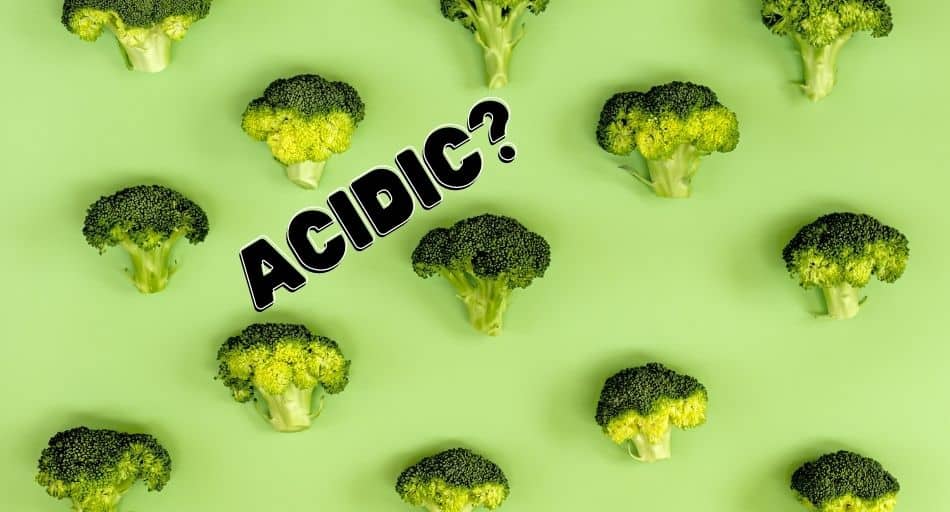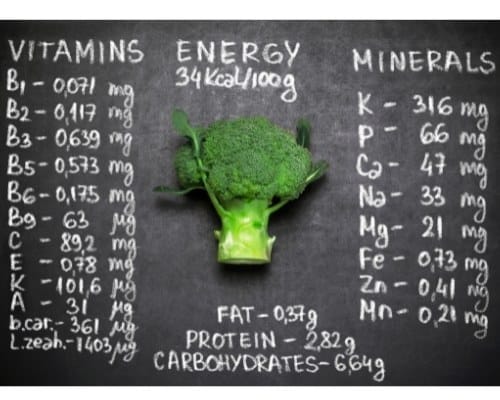Broccoli is one of those vegetables I hated as a child but love as an adult. Whenever I pack these little green trees into my sauce, stir-fry, or quiche, I feel slightly triumphant about having outgrown my preference for unhealthy food. But how healthy is broccoli really?

Table of Contents
Is broccoli acidic?
Broccoli is often recommended as the perfect vegetable if you want to avoid food that results in acid reflux. It has a pH value between 6.30 and 6.85 - this means that it is almost neutral, which would be number 7. Since its value is below 7, broccoli is still acidic, but only slightly so - and it is really rare for fruits and vegetables to come even that close to neutral.
What is even more important than the pH value before eating a food item is acid-forming or alkaline-forming inside your body. This means that an acidic vegetable can still contribute to your body's alkalinity once digested. This is true for food that has low sugar and high mineral content.
When considering this, broccoli gets even better because it is a highly alkaline-forming vegetable!
When you suffer from GERD (gastroesophageal reflux disease), which can lead to acid reflux, heartburn, and difficulties swallowing, you should eat lots of green vegetables - broccoli, but also green beans bean sprouts, avocado, kale, celery, and others. These plants help to stabilize the pH levels in your stomach.
Depending on your specific symptoms, a high-broccoli diet also has its drawbacks: when you suffer from gas and bloating, it is best to take it easy on the broccoli for a while since it will only add more gas to your digestive system. Luckily, there is a great variety of green, alkaline-forming veggies to choose from.
Aside from these windy side effects, the health benefits of broccoli outweigh any disadvantages to a great degree.
How Healthy Is Broccoli?

Those little trees are positively packed with nutrients! Broccoli is also high in fiber and low in calories as well as sodium. Its high fiber content ensures the presence of healthy gut bacteria. The sulforaphane in broccoli also helps to keep your stomach lining healthy.
This sulforaphane is also one reason why broccoli is so good for cardiovascular health, the health of your heart and blood system. Sulforaphane is anti-inflammatory and can prevent or even reverse damage to blood vessels. The B vitamins in broccoli regulate excessive homocysteine, an amino acid that heightens the risk of coronary heart disease.
The phytochemicals responsible for giving broccoli its color, smell, and flavor are great for the immune system.
Broccoli is a cruciferous vegetable and belongs to the genus Brassica. Other vegetables in this group are, for example, cabbage, cauliflower, brussels sprouts, and radishes. Cruciferous vegetables are known for their potential to reduce cancer risks.
These are chemicals called glucosinolates, which give these vegetables their strong smell and often slightly bitter flavor - two reasons why disliking broccoli and brussels sprouts seems to be such a universal childhood experience.
These chemicals are broken down into smaller biologically active compounds frequently examined for anti-cancer effects during the preparation and digestion of food.
It is well-known that carrots are good for eye health, but broccoli is, too. This is because both broccoli and carrots contain an antioxidant called lutein. Chemicals like this can help prevent macular degeneration, which leads to the blurring of the central vision, and cataracts, which are a clouding of the lens.
When it comes to getting all the nutrients, it is important how broccoli is prepared. When broccoli is boiled, it loses part of its cancer-fighting nutrients. Steaming it for up to 20 minutes, stir-frying it for 5 minutes, or microwaving it for 3 minutes is better.
While raw broccoli retains the most nutrients, it is also more likely to cause gas and irritated bowels.
Since the differences in nutrients are quite minor and we should not put all responsibility for a healthy lifestyle on a single vegetable, no matter how amazing it might be, I am in favor of everyone preparing their broccoli how they like it best and simply serving it with lots of healthy and delicious additions.
Don't know what to drink? Check out these articles: 20 Most and Least Acidic Juices and 20+ Alcoholic Drinks Ranked by Acidity Level
